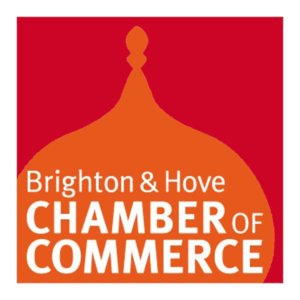A growing number of businesses in Brighton and Hove have agreed to pay a living wage to their workers.
This week is Living Wage Week. The aim is to encourage more employers to pay, not just the national minimum wage, but a living wage. A few years ago the Prime Minister David Cameron said: “It is an idea whose time has come.” London mayor Boris Johnson said that paying the living wage was “not only morally right but makes good business sense too”.
In Brighton and Hove wages have traditionally been below the regional average, while living costs have been nearer to those in London. Yet a surprising number of employers are signing up. The driving force behind the living wage campaign locally has been the Brighton and Hove Chamber of Commerce with backing from Brighton and Hove City Council.
Among the latest to sign up for the local campaign are Madison Solutions, Kare Plus and Brighton Pavilions Boutique B&B. John and Clare Woods, the branch directors of Kare Plus Brighton, said: “We are committed to ensuring excellent care is received by service users from our team and one way to ensure this quality is by valuing our staff and paying a fair wage.”
More than 140 businesses, charities, social enterprises and public sector organisations have now signed up to the Brighton and Hove Living Wage Campaign. When employers debated the merits of paying staff a living wage, Chamber of Commerce president Julia Chanteray pointed out the benefits for firms.
Staff are more likely to stay with you for longer so you don’t have the hassle of finding new people and training them up
She said: “There’s the old adage, ‘if you pay peanuts, you get monkeys.’ And judging by the customer service in some of the businesses (that) I know are paying below the living wage, some businesses are employing monkeys. Paying a living wage means that you’ll attract better employees.
“And remember what a hassle recruiting new people is. Interviewing, testing, checking references, inductions and training – no business person particularly enjoys these tasks. Paying the living wage means that staff are more likely to stay with you for longer so you don’t have the hassle of finding new people and training them up.”
The logic is appealing yet there is some resistance, most notably from those in hospitality, food and the tourist trade.
Nick Mosley, vice-chairman of the Tourism Alliance, said: “It’s important to say that I don’t think anyone objects to the principle. It’s just the realities of the sector.”
The hourly rate for staff may not take into account employee benefits such as tips, meals, a room or laundering uniforms. And business operating margins can be punishingly tight.
Many pubs, clubs, cafés, restaurants, hotels and bed and breakfasts go bust or are put up for sale each year because they aren’t making enough money. Even the most popular can be hurt by a poor summer or a run of wet weekends. A good Friday or Saturday night can compensate for only so many miserable Mondays.
Mr Mosley said there were nuances which were sometimes overlooked and flexibility was crucial to employers in these sectors. He added: “The debate can get too simplistic.” Each business had to make its own judgment and should not be vilified if it felt unable to afford the living wage.
The Chamber of Commerce is focusing on the positives, promoting businesses that have agreed to pay staff £7.65 an hour or more. Apprentices and interns are exempt. This rate compares with the statutory minimum wage of £6.50 an hour. The figure is reviewed each year in November and the new hourly living wage was due to be announced yesterday (Monday).
“Signing up to the campaign gives us a chance to promote you as a living wage employer,” the Chamber of Commerce said, adding: “It also enables those looking for a supplier that is a living wage employer to find you in the directory on our website. It’s free to sign up and takes only a few minutes. We aim to sign up 20 more businesses during Living Wage Week.”
For more information email Grace Evans at campaigns@businessinbrighton.org.uk or call 01273 719097.









